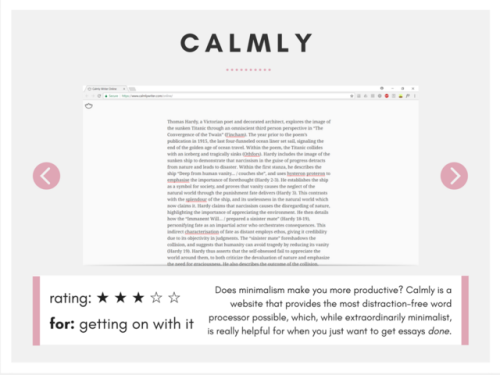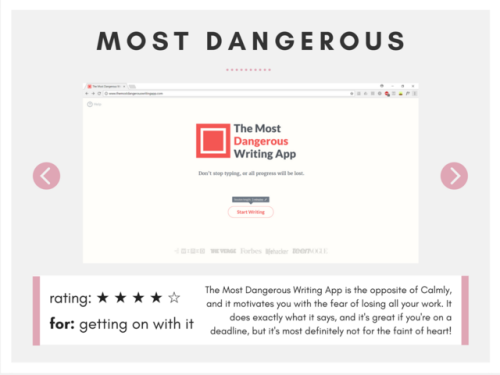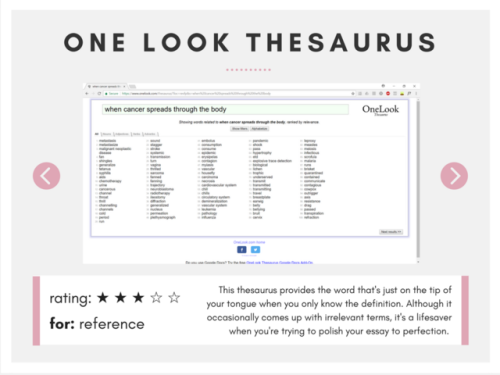Learn JLPT N5 Vocabulary: 立つ (tatsu)

Learn JLPT N5 Vocabulary: 立つ (tatsu)
More Posts from Earthquakedeer and Others
Just a friendly reminder that the end of net neutrality will also be the end of independent writers and artists having online access to their audiences. Do some research, spread the word, make a phone call if you can. Net neutrality is serious business for everyone, and it’s especially important for indie writers. I mean, it’d be cool to go back to trading paper zines via snail mail, but I’d prefer to have access to y’all’s work online as well. Social media sites already make it hard enough with their algorithms, etc. I’d hate to see the entire internet turn against us. Let’s not let them do it. Okay? <3

The obsolete English -k suffix is my new favourite thing (source). It’s also the same -k that derives “hark, hearken” from “hear”.
_DSC0093 by Kevin Ho

見つける|みつける|To find
German Vocabulary: Die Stadt - The City

Picture: Town hall square and Alster lake, Hamburg, Germany.
Die Stadt (f) - The city
das Gebäude (n) - the building
die Straße (f) - the street
der Bürgersteig (m) / das Trottoir (n) (Switzerland & Austria) - the pavement
das Hochhaus (n) - the tower/high-rise building
der Wolkenkratzer (m) - the skyscraper
die Ampel (f) - the traffic light
das Verkehrsschild (n) - the traffic sign
das Auto (n) - the car
der Bus (m) - bus
die Bushaltestelle (f) - the bus stop
der Zug (m) - the train
die Bahn (f) - the train (less formal)
der Bahnhof (m) - the train station
der Zebrastreifen (m) / der Schutzweg (m) (Austria) / der Fussgängerstreifen (m) (Switzerland) - the crosswalk
das Taxi (n) - the taxi
das Fahrrad (n) - the bicycle
das Krankenhaus (n) / das Spital (n) (Switzerland & Austria) - the hospital
die Gasse (f) - the alleyway
die Kreuzung (f) - the crossing
die Garage (f) - the garage
der Parkplatz (m) - the parking space/parking lot
das Parkhaus (n) - the multi-story car park
das Rathaus (n) - town hall
der Verkehr (m) - the traffic
das Haus (n) - the house
der Platz (m) - the square
die Apotheke (f) - the pharmacy
das Kino (n) - the cinema
Die Post (f) / Das Postamt (n) - the post office
das Hotel (n) - the hotel
das Restaurant (n) - the restaurant
die Bank (f) - the bank
die Schule (f) - the school
die Universität (f) - the university
der Flughafen (m) - the airport
das Stadion (n) - the stadium
der Park (m) - the park
der Spielplatz (m) - the playground
der Kindergarten (m) - the kindergarten
der Fluss (m) - the river
der Hafen (m) - the harbor/port
die Philharmonie (f) - the philharmonic
die Oper (f) - the opera
das Theater (n) - the theater
die Kirche (f) - the church
die Kathedrale (f) / der Dom (m) - the cathedral
Die Moschee (f) - the Mosque
Die Synagoge (f) - the Synagogue

Triacontakaitetragon
Now here’s a smoke quartz mouthful to tongue twist our way around. It means a 34 sided polygon. The rough weighed about 18 kilos, and was faceted into this shape as a commission by gem artist Lawrence Stoller.
Keep reading

Today we’ll be learning how to express “while/during” in Japanese with ながら (nagara)
Happy learning °˖✧◝(⁰▿⁰)◜✧˖°
…………………………………………
Useful Links:
• CrunchyNihongo - Easy to Learn Japanese Lessons Site • Get our easy Japan lessons on your facebook timeline • FREE DOWNLOAD! Resourceful app to start learning Japanese! • Books to guide & help you learn Japanese

Sometimes, when we are presenting, our bodies act completely irrationally. Sweating, stuttering, or just shutting down completely are all things I have encountered during public speaking; behaviour that is usually connected to extreme danger and fleeing behaviour. Completely unnecessary, as your teacher won’t kill you (hopefully), but trying to convince your body to be just as rational is a tough task. Turns out that this is exactly what we’re going to do.
The basis for this (personal) advice all lies in my musical training, where posture is extremely important. Performance practice lessons have taught me one important thing: you can trick your body into thinking it’s okay, and with that, your audience. disclaimer: I have posted this information before in a slightly different way. Regard this as an updated version. Hopefully one with better spelling.
hoooooow???
Stand up and try to follow these instructions. I’m your only audience right now, so mistakes aren’t a problem.
Start by relaxing your shoulders. Many people tense their shoulders when they’re anxious, which is a very natural reaction. However, tension in your shoulder automatically reaches through to your back and arms, and even your neck, tensing up your entire upper body. It’s confirming to your brain that yes! this is scary! Well, brain is wrong and we’re going to prove it wrong by relaxing our shoulders. Just let them hang down (make sure you don’t start leaning forward though, it should be just your shoulders). Doesn’t that immediately feel more relaxed?
Keep your feet a little bit apart, firm on the ground. This sends the message to your brain and audience that a single push will not have you fall over. Standing with your legs closely together simply isn’t as stable, and you want to radiate stability and confidence. Even if you’re feeling dizzy, this simple way of pretending will keep your feet on the ground. Literally.
Chin up, back straight, eyes at the audience. I used to tend to look at the ground, or to lean forward. No, no no! You want to maintain an open posture, and to address the entire audience. When you do this, you’ll look more secure, and maybe you’ll even notice people will listen to you more closely. Make sure you address the entire room, and not just one spot. if you’re scared to look at faces, look at the back wall. But not just one spot, find some nice different wall spots to look at.
What to do with your hands? I know I used to put my hands in my pocket, or fidget with something. Instead, try to talk with your hands more. When you’re using gestures, people will usually pay more attention to what you’re saying, and they’ll sometimes understand more easily (if you’re interested as to why, message me).
Do not hide. This is special advice to musicians, too. I used to hide behind my music stand because it was nice and safe. During public speaking it’s easy to hide behind some notes or to stand behind other people of your group, maybe. Don’t. Remember, fake the confident posture till you make it.
When you’re finished, don’t stop pretending just yet. When people ask how it went, always say it went okay. This is so so so important! Because if you’d say “ugh it was awful!! So many things went wrong, I suck at presenting!” they’ll start thinking hmm, yeah, there were indeed some mistakes… Could have been better. Whereas if you just say it was okay or good, or even decent, they’ll hardly even question it and will most likely remember the positive aspects, as humans tend to do.
I promise this works, at least to some extent. It may not help you get rid of anxiety right away, especially in really severe cases, but it can help you feel more at ease in front of a group. After that, you can start working on other things, such as volume, intonation, powerpoint use etc.
Just take a few seconds before you start talking to breathe, focus on those muscles, and to follow this with an amazing presentation (and a good grade).
You can always send me an ask for advice on public speaking! Even though I’m not a professional coach or whatever, I have overcome my speaking anxiety and maybe I can be of any help at all <3








Here’s some weapons for your essay writing arsenal!
Hemingway Editor Calmly Writer The Most Dangerous Writing App Purdue O.W.L. One Look Thesaurus JSTOR Google Scholar
Reply with your favourite or other great websites I didn’t include!
cute onomatope words

ビュービュー whistling sound; sound of the wind
わくわく tremble; excited
ぽかぽか nice and warm
ふんわり gently; airily; fluffy
ピンピン lively
にこにこ friendly smile
そっと softly; gently; quietly
すらすら smoothly
すやすや sleeping peacefully
ザーザー heavy rainfall
さらさら murmuring
ころころ lightly rolling
きらきら sparkle
ふわふわ fluffy
ぴかぴか glitter; twinkle
-
 nonbinaryiidatenya liked this · 5 years ago
nonbinaryiidatenya liked this · 5 years ago -
 ar2c2 reblogged this · 6 years ago
ar2c2 reblogged this · 6 years ago -
 chocochippudding liked this · 7 years ago
chocochippudding liked this · 7 years ago -
 08million liked this · 7 years ago
08million liked this · 7 years ago -
 lovebeingsoexxtrajisoo liked this · 7 years ago
lovebeingsoexxtrajisoo liked this · 7 years ago -
 jaxmills liked this · 7 years ago
jaxmills liked this · 7 years ago -
 freedarick liked this · 7 years ago
freedarick liked this · 7 years ago -
 love029world liked this · 7 years ago
love029world liked this · 7 years ago -
 katzensprotte liked this · 7 years ago
katzensprotte liked this · 7 years ago -
 feifeicuttie liked this · 7 years ago
feifeicuttie liked this · 7 years ago -
 earthquakedeer reblogged this · 7 years ago
earthquakedeer reblogged this · 7 years ago -
 hugo0420 liked this · 7 years ago
hugo0420 liked this · 7 years ago -
 derek38 liked this · 7 years ago
derek38 liked this · 7 years ago -
 mpzcallum liked this · 7 years ago
mpzcallum liked this · 7 years ago -
 qu33nmakeda liked this · 7 years ago
qu33nmakeda liked this · 7 years ago -
 hinodestudies reblogged this · 7 years ago
hinodestudies reblogged this · 7 years ago -
 ai-thne liked this · 7 years ago
ai-thne liked this · 7 years ago -
 colourmestars liked this · 7 years ago
colourmestars liked this · 7 years ago -
 sketchyluey reblogged this · 7 years ago
sketchyluey reblogged this · 7 years ago -
 thoyeer liked this · 7 years ago
thoyeer liked this · 7 years ago -
 rhianontemura reblogged this · 7 years ago
rhianontemura reblogged this · 7 years ago -
 naderqot liked this · 7 years ago
naderqot liked this · 7 years ago -
 loulilie liked this · 7 years ago
loulilie liked this · 7 years ago -
 hinodestudies liked this · 7 years ago
hinodestudies liked this · 7 years ago -
 juman0306 liked this · 7 years ago
juman0306 liked this · 7 years ago -
 liu5160 liked this · 7 years ago
liu5160 liked this · 7 years ago -
 narutheweirdo liked this · 7 years ago
narutheweirdo liked this · 7 years ago -
 la-curiosite reblogged this · 7 years ago
la-curiosite reblogged this · 7 years ago -
 edmelon liked this · 7 years ago
edmelon liked this · 7 years ago -
 shiroi-koe liked this · 7 years ago
shiroi-koe liked this · 7 years ago -
 rostenkowsky liked this · 7 years ago
rostenkowsky liked this · 7 years ago -
 kawaii-shoujo-anime-palace liked this · 7 years ago
kawaii-shoujo-anime-palace liked this · 7 years ago -
 sallyawayfromhome liked this · 7 years ago
sallyawayfromhome liked this · 7 years ago -
 ladyspade101 liked this · 7 years ago
ladyspade101 liked this · 7 years ago -
 happytoastzine reblogged this · 7 years ago
happytoastzine reblogged this · 7 years ago -
 v0otz7 liked this · 7 years ago
v0otz7 liked this · 7 years ago -
 shinymixedbag liked this · 7 years ago
shinymixedbag liked this · 7 years ago -
 devilinheadphones liked this · 7 years ago
devilinheadphones liked this · 7 years ago -
 acilykos liked this · 7 years ago
acilykos liked this · 7 years ago -
 shirowm liked this · 7 years ago
shirowm liked this · 7 years ago
Just a person learning Japanese. Self-learner. If you're also studying Japanese and want to practice with someone (and you're also very much a beginner) then message me! はじめまして! さびーなです。よとしく!
196 posts